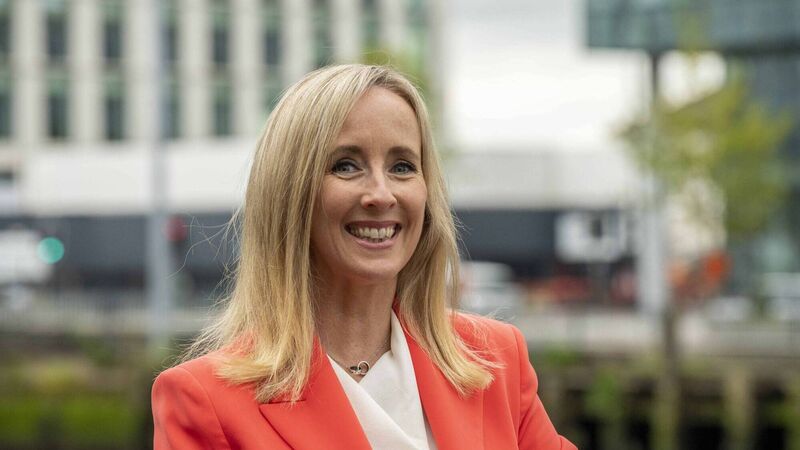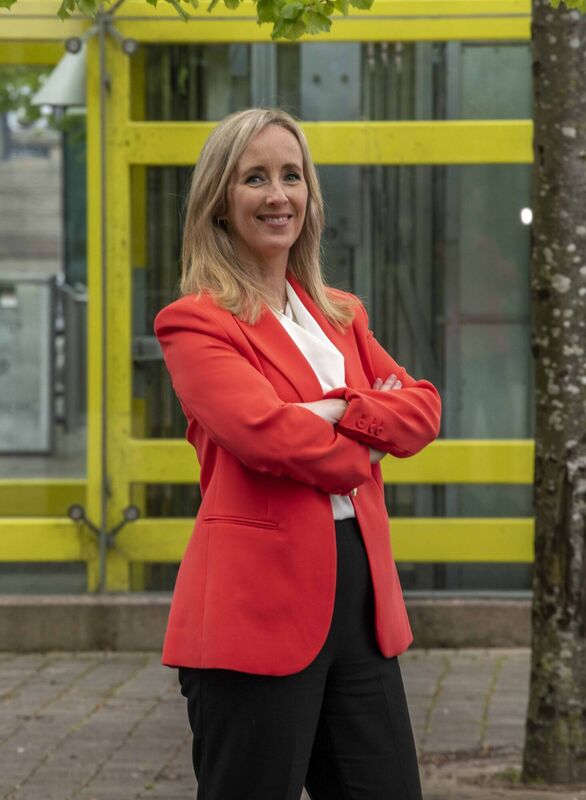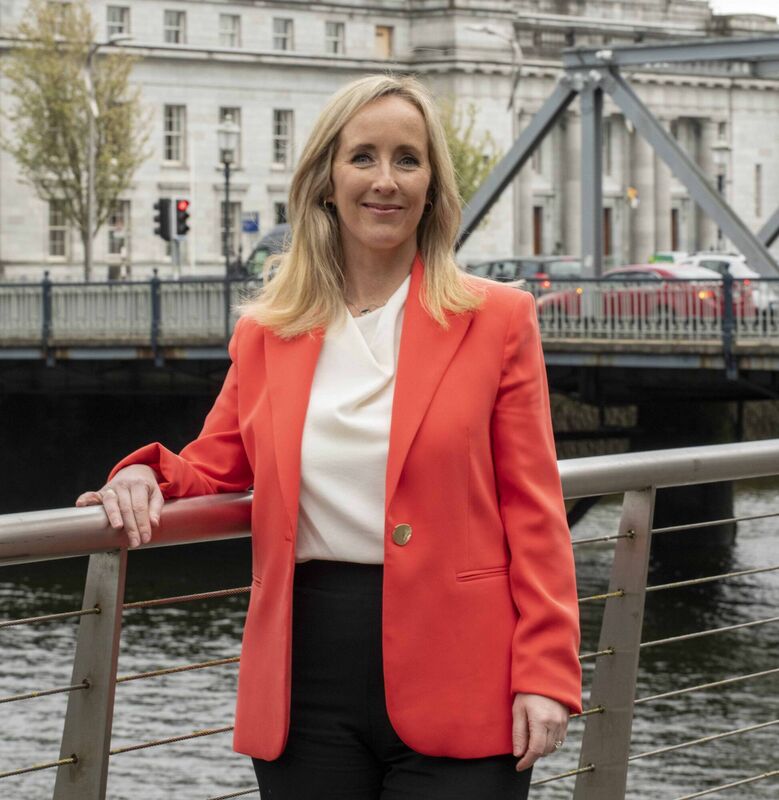'There are so many opportunities for women in the construction industry'

Joanne Treacy, Head of Southern Region Services, Construction Industry Federation (CIF). Picture: Brian Lougheed
JOANNE Treacy is a woman on a mission. Recently appointed as the Head of Southern Region Services for the Construction Industry Federation, not only is she determined to protect the needs and interests of the 200+ members in her remit and representing these to regional committees, state agencies and local authorities, she is also über-focused on attracting more women into the industry as a whole.
This is the first time that a woman has been appointed to the role and Joanne says she is “excited about what that means for the sector”.
Traditionally, the construction industry has been male-dominated, but there is definitely a wide acceptance and understanding that having women in the construction sector adds more value to the industry.
“If we want to build holistically, we need all the input of both males and females,” insists Joanne. “A more inclusive workforce benefits us all.”
With more than 15 years’ industry experience, Joanne holds qualifications in HR, leadership, health and safety and HSQE auditing.
Having worked as HR Manager for a large construction and engineering company that spanned Ireland and the UK, her skills include policy development and implementation, employee and industrial relations, organisational change, craft and professional training, and CPD.
She has vast experience and knowledge of the CIF from an end-user’s perspective.
“In my HR role, I had many dealings with the CIF over the years, so I am very familiar with the federation and have a good grasp of what the members need, look for, and expect.”
This wealth of insight will help inform and enrich her brief.
“The nature of my role is so diverse, ranging from dealing with the industry on issues, to contracts, auditing, event planning, problem solving, training and skills, recruitment and retention, and meeting deadlines.”
None of which is new to Joanne. In fact, in many ways, she believes that her new role is the culmination of all her career choices to date. And she feels excited by all that is to come.
A graduate of Design for Print at MTU, she worked initially as a graphic designer before being bitten by the travel bug and heading to Australia for a taste of adventure.

On her return, she found herself less enamoured with graphic design than she had been and decided to explore other job options.
Her initial job, as administrator for a project team in a pharmaceutical company, was a year’s contract only. So, too, her next one with an engineering firm.
“I was looking for something with more permanence”, she explains about her decision to join EPS, a Water Treatment company based in Mallow, as a programme administrator overseeing training and health and safety.
“The job evolved very quickly and soon I was overseeing the quality of standards and systems, and became the auditor for their management system, which included quality, environmental and safety.
“My role was heavily people-centred. I was also providing support for the HR department and when the role of HR manager came along, the company asked me to apply for the role.
“I was someone who always struggled with imposter syndrome,” admits Joanne. “I didn’t have the confidence in my abilities or belief in myself and I certainly didn’t imagine myself in that role. But I was blessed with a company that obviously saw potential and value in me. As a person, you have to allow yourself to accept that belief in you.”
She was offered the role of HR Manager and remained in that position for the next ten years.
“The experience and training I got in that company was immense and brought me down a career path that I would never have envisaged for myself. I had definitely found my niche.”
Joanne is a firm believer in grasping opportunities as they arise. And is an avid proponent of the belief that it is never too late to change tack.
“We are at our highest rate of employment in this country. For women who might be considering a career change, I urge them to go for it. It is never too late.
“There are so many opportunities out there. Try not to let outside factors impact your decision to grab an opportunity.”
Females only represent 9% of the construction industry.
“Even though I was in the minority in my previous company, I was never made to feel that my contributions were less valued because I am female.”
Although Joanne agrees that there is a challenge in the industry to address gender imbalance, she firmly believes the sector has the ability to tackle these obstacles.
She cites firms like PJ Hegarty, who have introduced a Diversity and Inclusion programme that sees female team members going into secondary schools to talk to girls about careers in the sector.
By seeing, first-hand, women in the construction sector, it helps female students to understand the variety of roles available in the industry, and where they might find their place.
Other construction companies, such as the Kirby Group, have specific female apprenticeship programmes to ensure that equality is built in at entry level to the firm.
Joanne aspires to get more involved in developing this concept of inclusion even more, by engaging with a mentor company, and in so doing, encourage other companies to come on board.
“We are not doing enough to improve the number of females being introduced to career opportunities in the construction industry,” she insists.

Schools are a natural starting point in dissolving the invisible limitations being imposed on subjects that would be traditionally regarded as male.
Joanne feels strongly that redefining the traditional landscape of career opportunities for both genders can happen as early as primary school.
“Things have moved on a bit in secondary schools, but we are still not doing enough,” she says. “It’s about being inclusive at the end of the day.”
Joanne also believes in encouraging those not inclining towards a degree in UCC and MTU, to explore the option of pursuing an apprenticeship through an educational facility of their choice.
Apprenticeships are aimed at both boys and girls and use a hybrid approach of time spent in a lecture theatre or classroom, and time honing technical skills and getting essential practical on-site experience.
Regardless of gender, from design, architecture, engineering, craft, interior landscaping, fit-outs and project management, there are a huge range of diverse and challenging roles available to people, not to mention the support service roles within construction companies.
Joanne’s role as the new Head of Southern Region Services with the Construction Industry Federation is an onerous one but in a time of exciting developments.
“Cork is a centre of excellence for life sciences and tech. We have the skillsets here to design, build and manufacture, bringing people through the system, from architect and designer through to bricklayer and engineer.”
Last year, there were 167,000 people working in the construction industry in Ireland, generating €32 billion for the Irish economy, and that is estimated to be on a par again this year. 10% of this is generated in Cork.
“We are living in a ‘built-environment’. My remit is fundamentally to look after the needs of our members, from the two-man operation to the construction goliaths, and to ensure that we are collectively working to make sure the doors in our industry continue to open outwards, that we continuously move forward, eliminate obstacles, and do what we do best: build.”







 App?
App?


